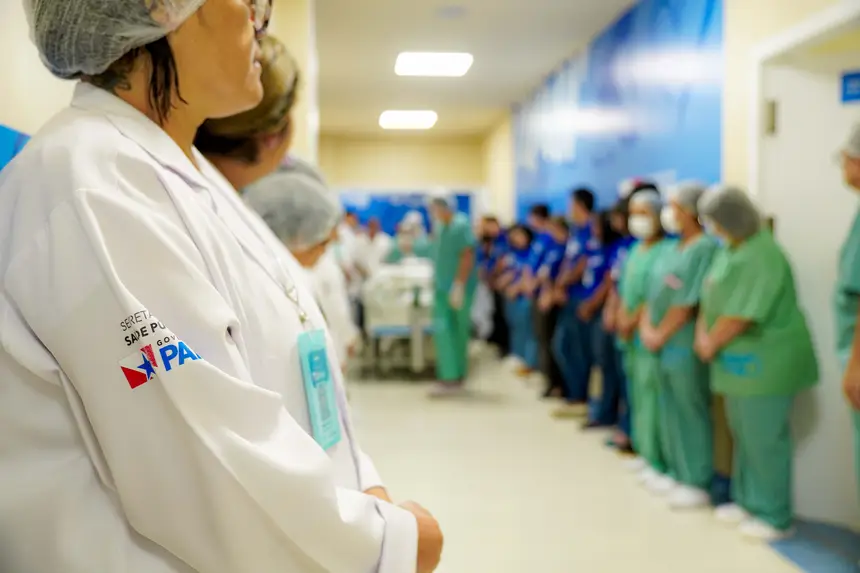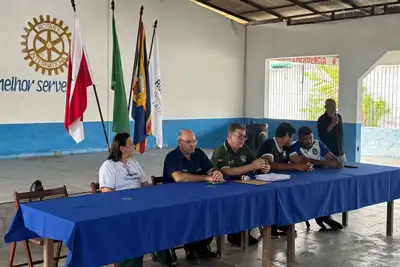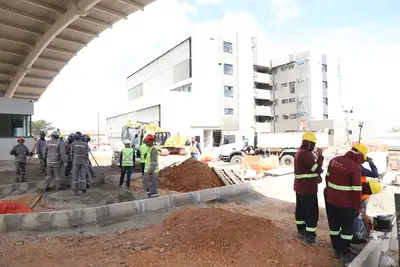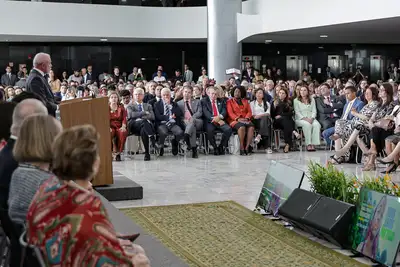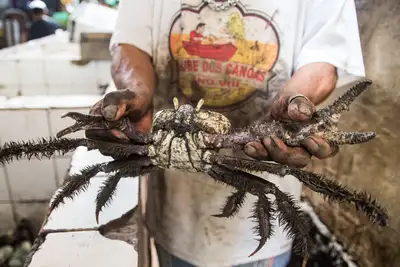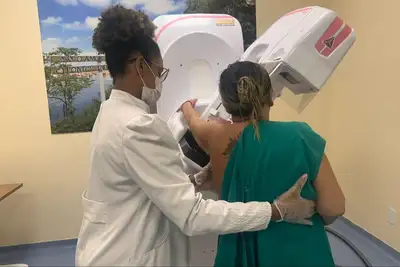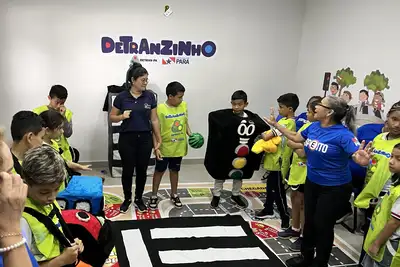State Emergency Room conducts first organ donation for transplantation
The solidarity act of the family of a patient with brain death allows saving lives and consolidates the hospital's commitment to humanized care and organ donation policies
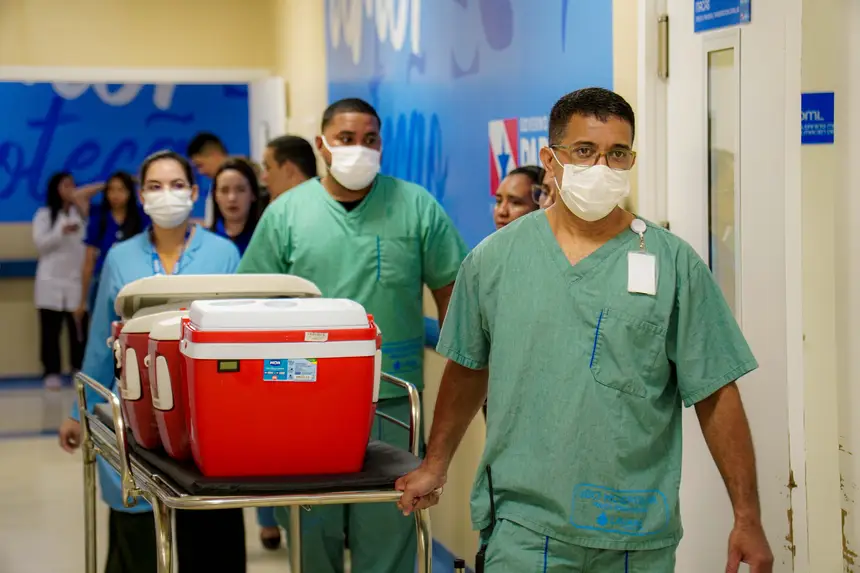
The Dr. Roberto Macedo Emergency Room (PSRM) conducted, on the night of Wednesday (28), the first organ donation for transplantation from the health unit, after authorization from the patient's family, who, in a solidarity gesture, transformed the pain of loss into hope for patients who rely on donations for the maintenance and quality of their lives.
The process that preceded the first organ donation at PSRM was conducted internally by members of the multidisciplinary team of the Intra-Hospital Commission of Organs and Tissues (CIHDOTT), which aims to organize routines and protocols within the institution that enable the process of organ and tissue donation for transplants, while the activities related to the act of donation were coordinated by the team from the State Transplant Center (CET), linked to the State Department of Public Health (Sespa) - responsible for organizing, coordinating, and regulating donation and transplant activities in the state health network.
The first organ donation was carried out with great respect and reverence in a humanized act of welcome and gratitude to the family, who chose to save other lives.
Professionals from the institution gathered in the corridor leading to the Surgical Center, through which the donor passed with the family, and, in a gesture of gratitude, respect, and reverence, fell silent, which was interrupted only by a song sung by a nursing professional; a song that spoke of gratitude and hope, while the patient was taken to the Surgical Center, followed by applause for the family, in homage to the grand and solidarity gesture, in a moment that moved everyone.
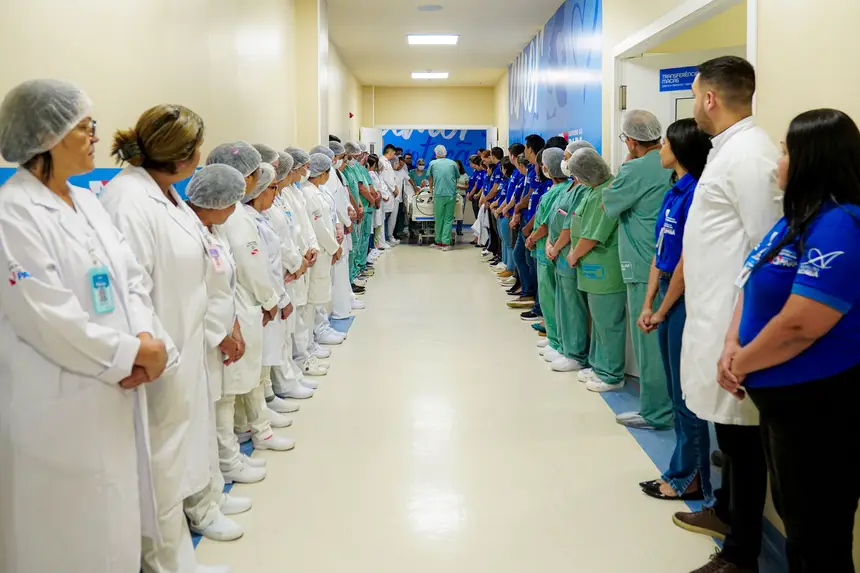
For the technical director of PSRM, Fábio Sampaio, the first donation represents a historic moment for the health unit, a state reference in emergency and urgent care for Belém and the Metropolitan Region. He points out that the act symbolizes not only a technical advancement but primarily a profound gesture of human solidarity. "We are immensely grateful to the donor's family, who, even in the midst of pain, authorized lives to be saved. We reinforce our commitment to ethics, respect, and the appreciation of life in all its forms," he emphasized.
Organ donation - To be an organ donor after death, a rigorous medical protocol must be followed to determine if the patient has had brain death, which consists of the irreversible cessation of brain functions. Currently, a patient who intends to be a donor does not need to leave any written document but must express this wish to the family.
According to the coordinator of the State Transplant Center (CET) of Sespa, Alfredo Abud, Pará is aligned with the national transplant model, which makes Brazil the second largest organ transplant country in the world, behind only the United States. "Our prominent position at the global level reinforces the strength of the public health network in the state, which offers comprehensive and free assistance to patients. The positive results of recent years are the result of a collective effort among health professionals, government, and society, promoting hope for those waiting for a transplant," he highlighted.
President of CIHDOTT at PSRM, intensivist doctor Anderson Silva, emphasizes that the donation, in the context of health assistance in the hospital setting, is extremely important and is part of a quality policy implemented by the PSRM management and the technical board, which is widely emphasized among the teams. "This process is still very unknown to some people, but our idea is precisely to spread knowledge internally, because in the face of a critically ill patient in an ICU bed with suspected brain death, there is a whole protocol and approach with the family; a whole welcome so that they understand the benefits, risks, and prognostic severity of the patient."
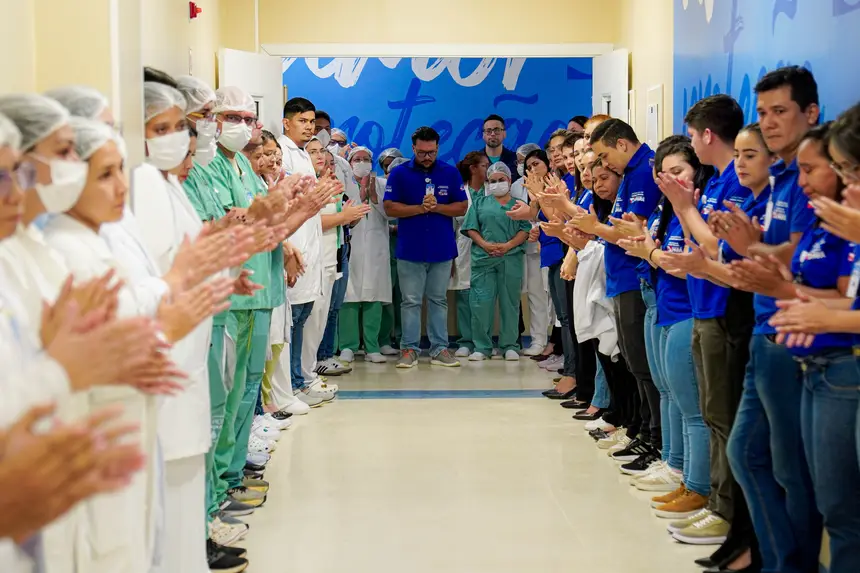
Anderson Silva also points out that this first organ donation process was complex, but thanks to the dedication and professionalism of everyone, it was possible to carry it out satisfactorily and, despite the pain, it will also generate healing. The family deserves congratulations; they are very strong and resilient because it is not easy to absorb this volume of information and, especially, to make a decision to save lives. But this is our commitment: to always offer the best for the population we serve at the Dr. Roberto Macedo Emergency Room,” assures the president, the intensivist doctor.
One of the responsibilities of CIHDOTT is to carry out actions to encourage organ donation and to raise awareness among the internal public of the health institution about the importance that the decision to authorize organ donation can have on the lives of other patients.
The commission is also responsible for conducting awareness-raising work, both among health professionals and the general community, addressing the importance of donation, emphasizing that everything is done very safely, making it clear that the diagnosis of brain death is made after evaluation by different medical teams, in a strict protocol to ensure safety for the family as well.
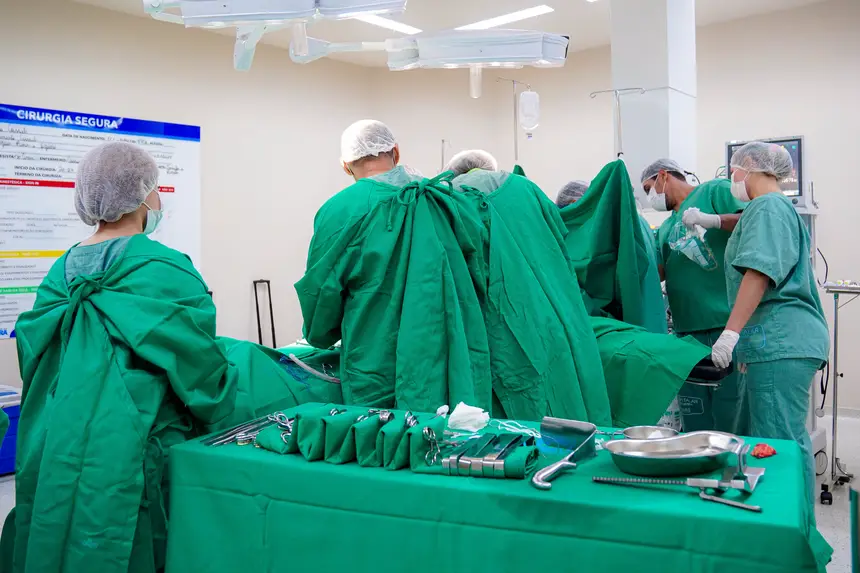
According to the general director of PSRM, Carlos Vinícius Ribeiro, the first organ donation from the emergency hospital, which transformed the pain of the family into hope for other patients fighting for life, involved internal efforts from the members of the Intra-Hospital Commission and the State Transplant Center, so that everything could occur within the established criteria, especially regarding the humanized welcome of the family in a delicate moment.
“Our function is to save lives, but we know that despite all our efforts, a percentage of neurological patients end up evolving to brain death, as, unfortunately, was the case with our patient, who despite the outcome of his clinical condition, saved the lives of other people, through the authorization given by the family, for the donation of their loved one's organs,” he emphasized.
Service - The Dr. Roberto Macedo Emergency Room is located on Avenida Augusto Montenegro, in Belém. The unit is managed by the Acqua Institute, in partnership with the State Department of Public Health (Sespa), and operates on a 24-hour shift basis. The state emergency room is a reference in urgent and emergency care, with specialties such as general surgery, pediatric surgery, vascular surgery, thoracic surgery, maxillofacial surgery, and neurosurgery.
Text: Joelza Silva / Ascom PSRM


